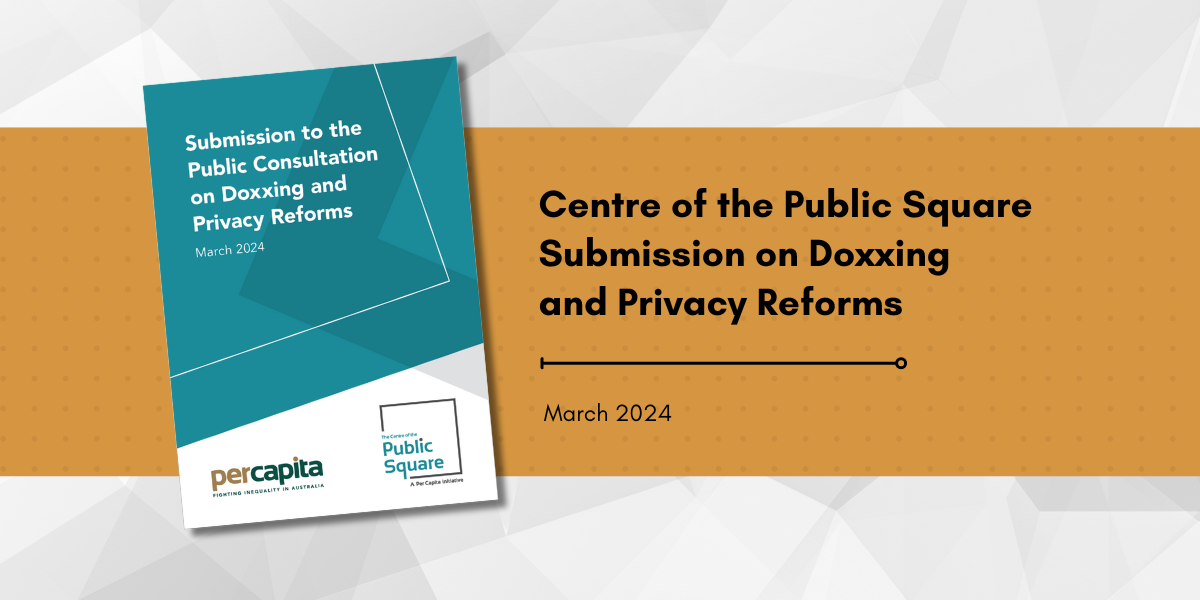Submission to the Public Consultation on Doxxing and Privacy Reforms

Download our full submission here.
Australians are increasingly concerned about privacy, particularly online privacy. Most want additional rights under Australian privacy laws. Findings in the 2023 Australian Community Attitudes to Privacy Survey reveal that three in five Australians see the protection of their personal information as a major concern in their life; almost half of Australians had been informed that their personal information was involved in a data breach in the 12 months leading to the survey; and one in four of those said they experience harm as a direct result.
In a separate survey conducted in 2023 by the Australian Institute of Criminology based on 13,887 computer users, almost half of all respondents said that they had experienced at least one instance of cybercrime, including doxxing, in the 12 months prior to the survey.
Doxxing, which includes the deliberate online exposure of an individual’s identity, private information, or personal details with malicious intentions, can bring about dangers for individuals in the physical world, ranging from humiliation to physical stalking. It can seriously damage someone’s personal and professional reputation, leading to social and financial disadvantage.
Currently there are few avenues for individuals to seek redress for the harm caused by doxxing. A new statutory tort for serious invasions of privacy where there is intentional misuse of private information in circumstances where there is a reasonable expectation of privacy, would allow individuals to seek redress through the courts if they have fallen victim to doxxing.
There is no doubt that privacy should be protected. It is recognised as a fundamental human right in numerous international instruments and treaties that Australia has ratified. The right to privacy is an important public interest, but it must be balanced with, and sometimes give way to other rights and interests. In all contexts the consideration of other rights and interests is important, but in the context of laws which relate to digital privacy rights and cybercrime, consideration of the public interest in freedom of speech, expression and of the press, is particularly vital.




